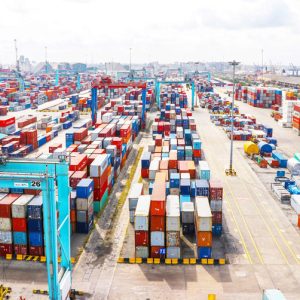Description
Training Modules
Day 1: Understanding Local Content
Module 1: Introduction to Local Content Development in Nigeria
- Overview of Nigeria’s Local Content Act and its objectives.
- The role of innovation & entrepreneurship in local content success.
- Local Content policies and regulations
- Establishment of NNPC-NCD
- Case studies of successful local content entrepreneurs.
- Case studies of Corporate Strategy; Community Development & Stakeholder
- Engagement
- What next from Upstream
- Are Skills, expertise and experience transferable to Midstream & Downstream Compliance with NCDMB
- Client and Statutory requirements
- Local content metrics and reporting
- Local resourcing (manpower, goods and services); Driving industrialization through Local content
- Strategies of cooperation, collaboration and coordination of resources
Innovation in Entrepreneurship
Module 2: Innovation for Business Growth
- What is innovation in entrepreneurship?
- Types of innovation: Product, Process, Market, and Business Model Innovation.
- How to identify business opportunities in Nigeria’s local industries.
Module 3: The Entrepreneurial Mindset & Problem-Solving
- Characteristics of successful entrepreneurs.
- Developing a growth mindset for business success.
- Practical design thinking & problem-solving exercises.
Day 2: Business Model Innovation & Value Chain Development
Module 4: Business Model Development for Local Content
- Understanding the Business Model Canvas (BMC).
- How to design profitable business models that align with local content objectives.
- Real-world examples of local business models that work.
Module 5: Value Chain & Supply Chain Optimization
- Identifying local supply chain gaps and opportunities.
- How to integrate into Nigeria’s industrial value chain.
- Strategies for collaborating with larger corporations and government agencies.
Module 6: Leveraging Technology & Digital Transformation
- Role of digital tools & platforms in local content entrepreneurship.
- Introduction to business automation, AI, and blockchain.
- Case study: How Nigerian SMEs are scaling through tech.
Day 3: Regulatory Compliance, Policies & Funding Opportunities
Module 7: Local Content Regulations & Compliance
- Understanding Nigerian Content Development and Monitoring Board (NCDMB) policies.
- Regulatory frameworks for entrepreneurs and SMEs.
- Navigating compliance, tax incentives, and government support programs.
Module 8: Access to Finance & Investment Readiness
- Sources of funding for local content businesses (grants, loans, venture capital).
- How to create a winning business proposal & investor pitch.
- Panel discussion with funding & investment experts.
Module 9: Building Strategic Partnerships for Business Growth
- The role of public-private partnerships (PPP) in local content.
- Networking with government agencies, oil & gas companies, and manufacturers.
- Interactive session: How to craft successful business collaborations.
Capstone Project & Action Plan Development
Module 10: Business Pitch & Strategy Execution
- Practical session: Participants develop and present their business case.
- Refining business models based on real-world insights.
Module 11: Developing a Local Content Business Action Plan
- Participants create a step-by-step business roadmap for implementation.
- Identifying key milestones, risks, and success metrics.
Day 4: Sustainability, Scaling & Competitive Advantage
Module 12: Sustainable Business Practices & ESG Compliance
- The importance of Environmental, Social, and Governance (ESG) compliance.
- Building resilient and sustainable local businesses.
- Case study: Sustainable business strategies in Nigeria.
Module 13: Market Expansion & Competitive Positioning
- Strategies for scaling a local business beyond Nigeria.
- Competitive advantage: Branding, customer retention & product differentiation.
- Introduction to export readiness & global markets.
Module 14: Entrepreneurial Leadership & Team Development
- Leadership skills for entrepreneurs & business owners.
- How to build a strong, innovative, and high-performing team.
- Role-playing activity: Managing business challenges effectively.
Module 15: Closing
- Key takeaways from the training.
- Awarding of certificates of completion.
Learning Outcomes
- By the end of this training, participants will be able to:
- Understand Nigeria’s Local Content Policy and its impact on business opportunities.
- Identify innovation-driven business models to enhance competitiveness in local industries.
- Develop entrepreneurial strategies to establish and sustain local enterprises.
- Leverage technology and digital tools to scale business operations.
- Navigate regulatory frameworks to maximize compliance and benefits.
- Build strategic partnerships with key stakeholders in local content development.
- Create action plans for business sustainability and growth.





